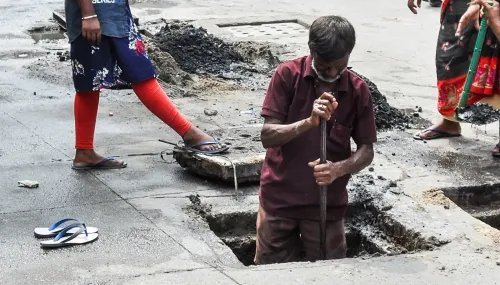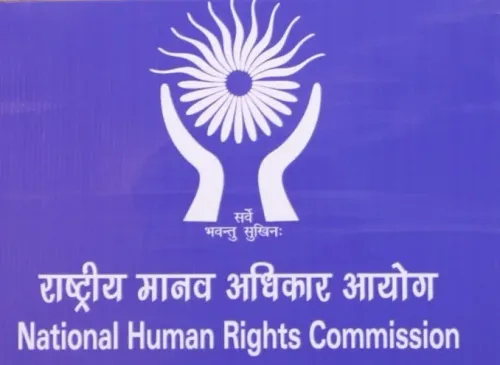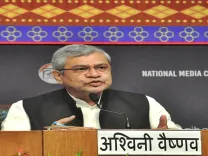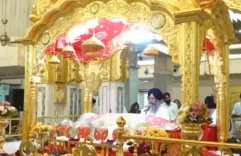Why is the Awami League Criticizing Yunus' Government for Ignoring National Mourning Day?
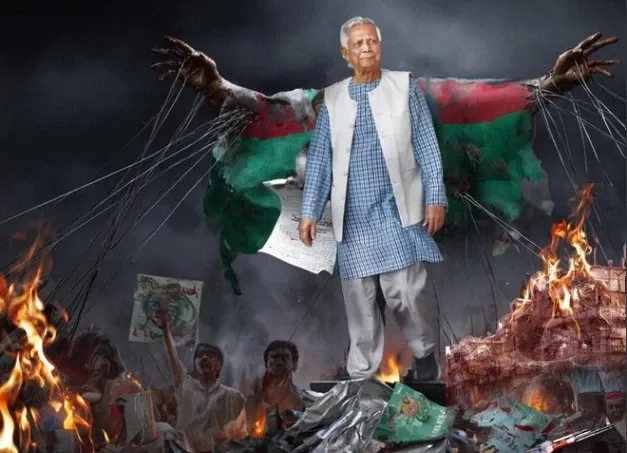
Synopsis
Key Takeaways
- Awami League condemns Yunus regime's decision.
- August 15 marked as National Mourning Day.
- Historical significance of Bangabandhu's assassination.
- Call for unity among citizens.
- Political implications for Bangladesh's future.
Dhaka, Aug 14 (NationPress) The Awami League of Bangladesh expressed strong disapproval on Thursday regarding the decision of the interim government led by Muhammad Yunus to refrain from honoring the 50th death anniversary of Bangabandhu Sheikh Mujibur Rahman on August 15. The government has also cautioned citizens against organizing any commemorative events.
The Awami League has declared August 15 as National Mourning Day, marking the tragic assassination of Bangabandhu Sheikh Mujibur Rahman and numerous family members.
The party condemned the Yunus regime for allegedly undermining people's rights and freedom of expression by preventing them from observing this significant day.
According to their statement, "August 15 signifies National Mourning Day—a day marked by deep sorrow, recalling one of the most barbaric murders in human history. On this day in 1975, treasonous assassins, who were enemies of humanity, brutally killed Bangabandhu Sheikh Mujibur Rahman—a monumental leader of Bangladesh's liberation struggle and an enduring symbol of hope for the Bengali people, the architect of an independent Bangladesh, and the Greatest Bengali of all time—along with many of his family members," the Awami League's statement articulated.
The party characterized August as a historically unfortunate month for Bangladesh, noting that it also saw the horrific grenade attack in Dhaka on August 21, 2004, and nationwide serial bomb blasts on August 17, 2005.
Furthermore, they highlighted that in August 2024, the "anti-liberation and anti-national forces—fueled by Pakistani ideologies—illegally seized power through intricate domestic and foreign schemes."
The Awami League criticized the interim government for its illegal power takeover, asserting that the Yunus administration has derailed a thriving Bangladesh and closed off opportunities for its citizens.
The party called on the populace to transform their sorrow into strength, vowing to liberate Bangladesh from its current state of oppression.
They stated, "The treacherous assassins of August 15, 1975 did not merely stop with the murder of Bangabandhu; they implemented the disgraceful Indemnity Ordinance to halt the trial proceedings regarding the assassination."
The Awami League further emphasized that former Prime Minister Sheikh Hasina has established the rule of law and ensured justice for the perpetrators. Despite numerous challenges, Hasina has initiated the trial process for heinous war criminals through the creation of the International Crimes Tribunal (ICT).
However, in retaliation, the party claimed that the "murderous fascist Yunus clique" has illegitimately restructured the ICT to orchestrate a mock trial against Hasina and other leaders.
"By violating the sacred Constitution—written in the blood of countless martyrs—the murderous clique has unlawfully seized state power, depriving the people of their rights and freedom of expression. They even announced that observance of National Mourning Day on the martyrdom anniversary of Bangabandhu would be prohibited, threatening arrests for those who would defy this order," the party stated.
"They have instated a climate of fear across the nation. Against this wall of fear erected by anti-people forces, we must rise with ideals and courage. By transforming August’s grief into strength and igniting the flame of resistance, we must usher in a new dawn of possibilities," they added.
The Awami League has urged its allies, fraternal organizations, and various socio-cultural and political groups, both domestically and internationally, to commemorate National Mourning Day on Friday with appropriate dignity, respect, and love in a solemn and grief-laden atmosphere.


